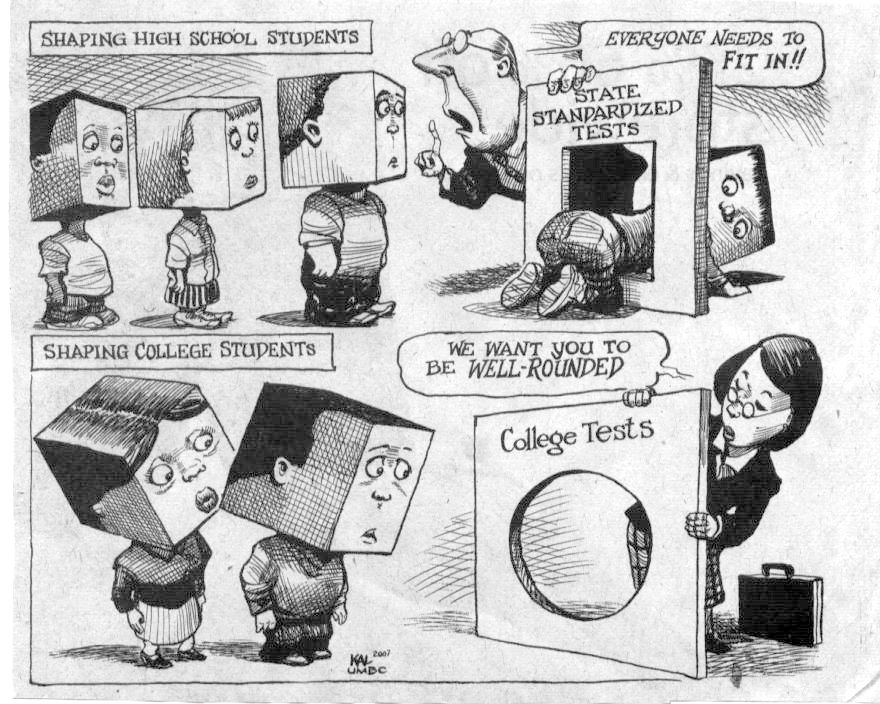In recent years, there have been increased objections towards beauty standards—the idea that one who portrays specific physical qualities may be classified as beautiful. These standards are often unrealistic and therefore, many find themselves disappointed as to why they cannot conform themselves to a box brimming with erroneous expectations. In effect, discontent with one’s image promotes mental illnesses and “psychological distress,” according to the Mental Health Foundation UK. These similar effects of beauty standards are visible in educational standards… so why hasn’t it been spoken about?
From the constant viewing of grades to the comparison of one student to another, school can no longer be about learning—rather, it has become about memorization, a skill that is temporary, a skill that does not incorporate understanding. As students, our capability has been measured by standardized tests (such as the SAT, ACT, etc.) that do not accurately depict the potential of all students. Though a student may score ideally on tests of this kind, another student who may have scored poorly had the potential of scoring flawlessly…had the test been designed for their cognition. When one receives a lower score, they underestimate and characterize themselves as unintelligent or stupid, and when pessimistic words of these kinds are consistently repeated towards oneself, it becomes accepted. The acceptance of these words give birth to dreariness and prevents students from further challenging themselves, otherwise known as learned helplessness. And for that reason, I feel that these standardized tests are subjective because individual thinking processes are not acknowledged.
However, I suppose it is foolish to entirely blame the structure of standardized tests when the problems arise from the way in which society holds educational standards with such high regard. The tests themselves are not always the issue—not until it begins to be used as a source to determine whether or not an individual is intelligent enough to fit in with societal standards. To recognize that universities look foremost to a number received on one singular test is discouraging. To recognize that universities may reject you because of a test that does not define your potential is worse. Thus, we have begun to accept and appreciate an abundance of physical appearances, why must we cease implementing the same on different thinking and learning methods? Rather, we should mold this box of false standards to conform to our ways of thinking, than struggle to fit into a box that was not built for us to begin with.









Be First to Comment